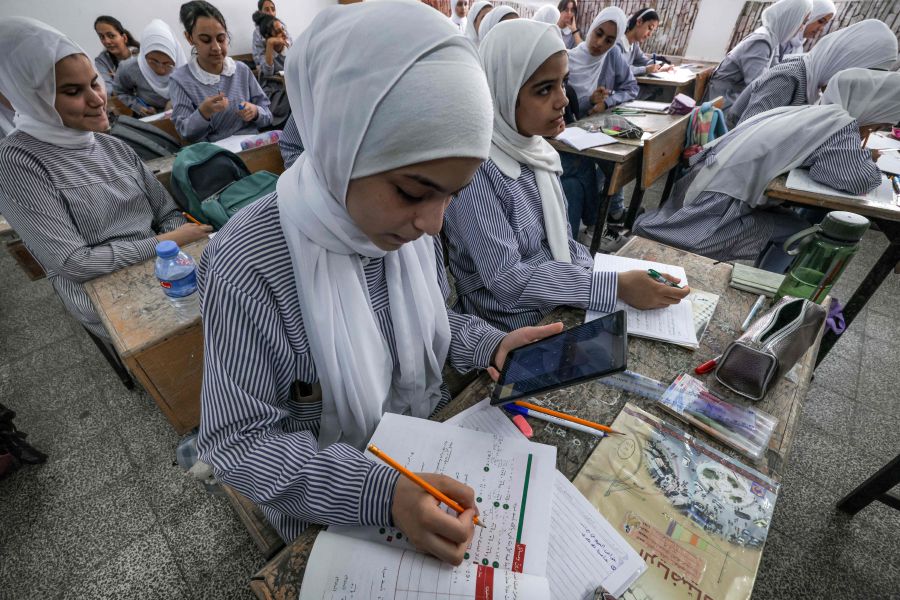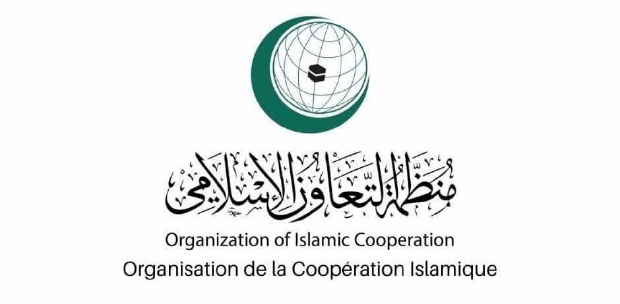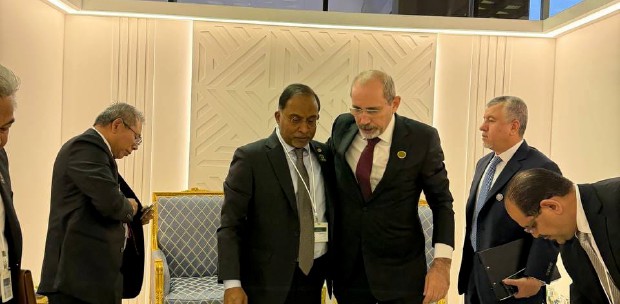The Independent Permanent Commission on Human Rights of the Organisation of Islamic Cooperation (OIC-IPHRC), in collaboration with the Malaysian government, will hold its 8th International Seminar on "Islamic Perspectives on Refugee Protection — Rights and Access to Education" on Oct 5 and 6, 2022 in Kuala Lumpur.
The focus of this write-up is on refugees' right to access to education and what the OIC can do to realise this goal.
This seminar is important because it seeks to find ways and means to realise refugees' right to education.
The right of access to education, especially primary and secondary, although recognised as a basic right in international human rights instruments, including the 1989 Convention on the Rights of the Child and the 1951 Refugee Convention, as well as Islam, remains largely on paper and is not implemented in the case of refugees. Refugee children, like all children, want to study to fulfil their dreams and aspirations, and to be useful for themselves, their parents and the country they live in.
However, the sad reality is that most of them do not have access to schools for education.
Unless serious steps are taken to address this issue, the outlook, especially in less developed and developing countries, is bleak as to whether they will ever have access to education.
The issue of refugee children's lack of access to education and its reasons has been discussed many times at the international level under the auspices of the United Nations High Commissioner for Refugees (UNHCR), but without concrete results.
It has been said that the increase in the number of refugees in the world, the unavailability or limited resources of the host countries and the lack of proper documentation are the main reasons why refugee children do not have access to education.
However, no reason can be a good reason to justify denying education to refugee children.
No doubt, the responsibility of providing education to children rests with the country of origin, but in the case of refugees, their country of origin is either unable or unwilling to fulfil this obligation, and in such cases, the responsibility shifts to the international community, of which the OIC is a major part.
The OIC, the second largest international organisation after the United Nations, has the necessary leverage over the Muslim states, some of which are very rich, to create a Refugee Educational Fund and requires well-to-do Muslim countries, rich individual Muslims and cooperation to contribute to that fund.
The OIC should then make use of that fund to build schools for refugees in poor host countries or open virtual schools and pay for their educational expenses.
If such an initiative is adopted by the OIC, wealthy Muslim countries, individuals and companies, based on the spirit of the Quranic verse that says to "cooperate in righteousness and piety" (Qur'an: 5:2), will cooperate in the realisation of refugees' right to education.
Providing education to refugees is certainly a righteous act that Muslim countries must adopt in a united and collaborative approach to ensure success in this area.
Effective implementation of refugees' right to access education also requires the establishment of a task force by the OIC to deal with this issue quickly and effectively and to ensure that no refugee child, especially in poor host countries or any other country, is ever deprived of education.
Host Muslim countries facing financial constraints to provide education to refugees should benefit from the OIC Refugee Educational Fund to ensure refugees' right to education is implemented.
Countries whose domestic laws do not allow refugees access to national schools or the establishment of schools for refugees should be encouraged to amend their laws in this regard to at least allow the establishment of schools funded by OIC refugee funds.
There are charitable organisations that would like to open real or virtual schools for refugees in some host countries, but are unable to do so due to legal or technical barriers or simply a lack of cooperation from the host countries.
In this case, the OIC should use its leverage to enlist the cooperation of host countries to facilitate the reopening of schools.
In this way, the OIC can make a big contribution to the effective implementation of refugees' right to education.
This is beneficial for everyone because education empowers refugees, ensures their employability, gives them the knowledge and skills to lead an independent and productive life, and also effectively contributes to the economic prosperity of their host countries.
The writer is a professor at the Ahmad Ibrahim Kulliyyah of Laws, International Islamic University Malaysia




